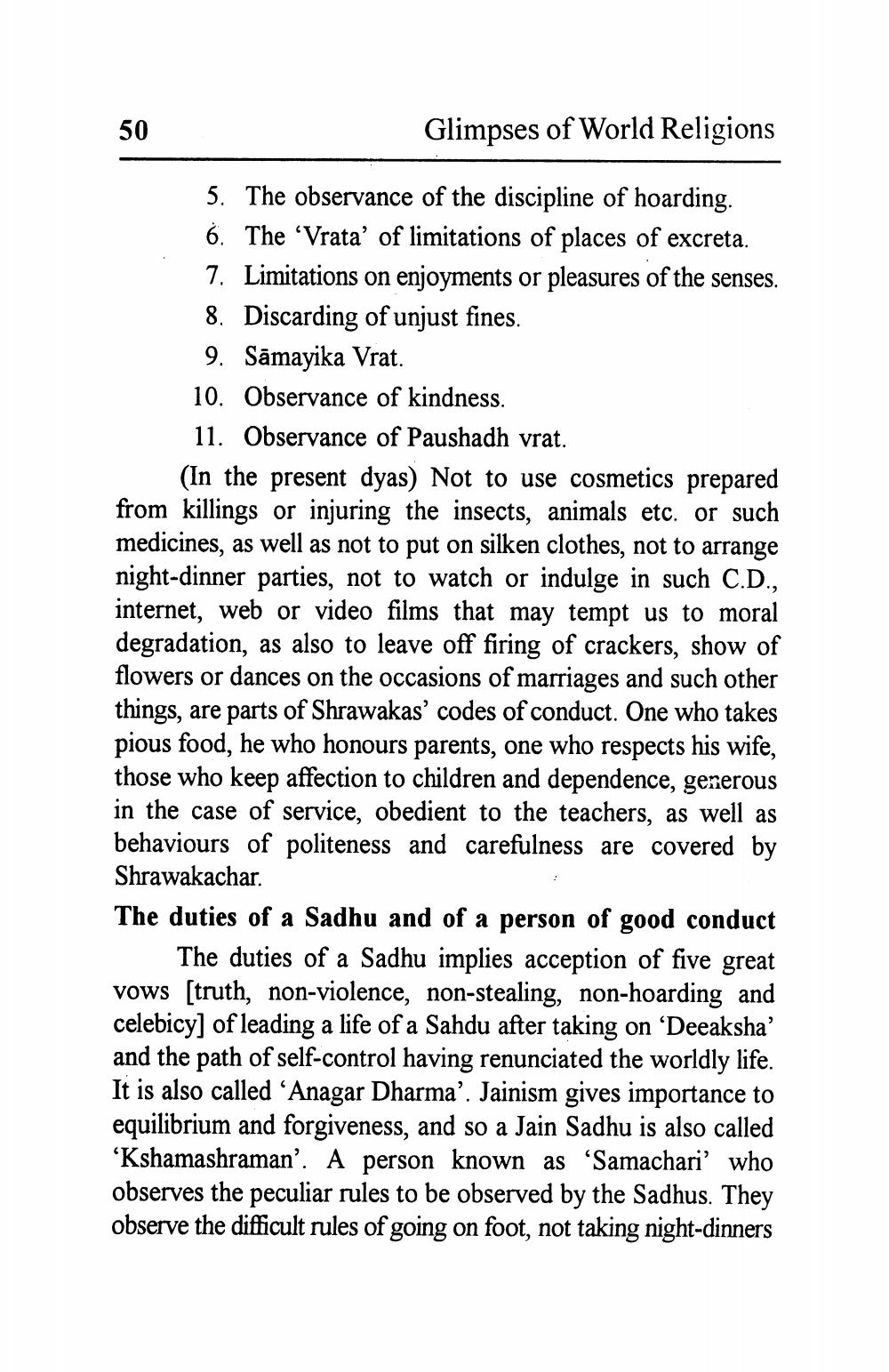________________
50
Glimpses of World Religions
5. The observance of the discipline of hoarding. 6. The ‘Vrata' of limitations of places of excreta. 7. Limitations on enjoyments or pleasures of the senses. 8. Discarding of unjust fines. 9. Sāmayika Vrat. 10. Observance of kindness. 11. Observance of Paushadh vrat.
(In the present dyas) Not to use cosmetics prepared from killings or injuring the insects, animals etc. or such medicines, as well as not to put on silken clothes, not to arrange night-dinner parties, not to watch or indulge in such C.D., internet, web or video films that may tempt us to moral degradation, as also to leave off firing of crackers, show of flowers or dances on the occasions of marriages and such other things, are parts of Shrawakas' codes of conduct. One who takes pious food, he who honours parents, one who respects his wife, those who keep affection to children and dependence, generous in the case of service, obedient to the teachers, as well as behaviours of politeness and carefulness are covered by Shrawakachar. The duties of a Sadhu and of a person of good conduct
The duties of a Sadhu implies acception of five great vows [truth, non-violence, non-stealing, non-hoarding and celebicy) of leading a life of a Sahdu after taking on 'Deeaksha' and the path of self-control having renunciated the worldly life. It is also called 'Anagar Dharma'. Jainism gives importance to equilibrium and forgiveness, and so a Jain Sadhu is also called Kshamashraman'. A person known as “Samachari' who observes the peculiar rules to be observed by the Sadhus. They observe the difficult rules of going on foot, not taking night-dinners




